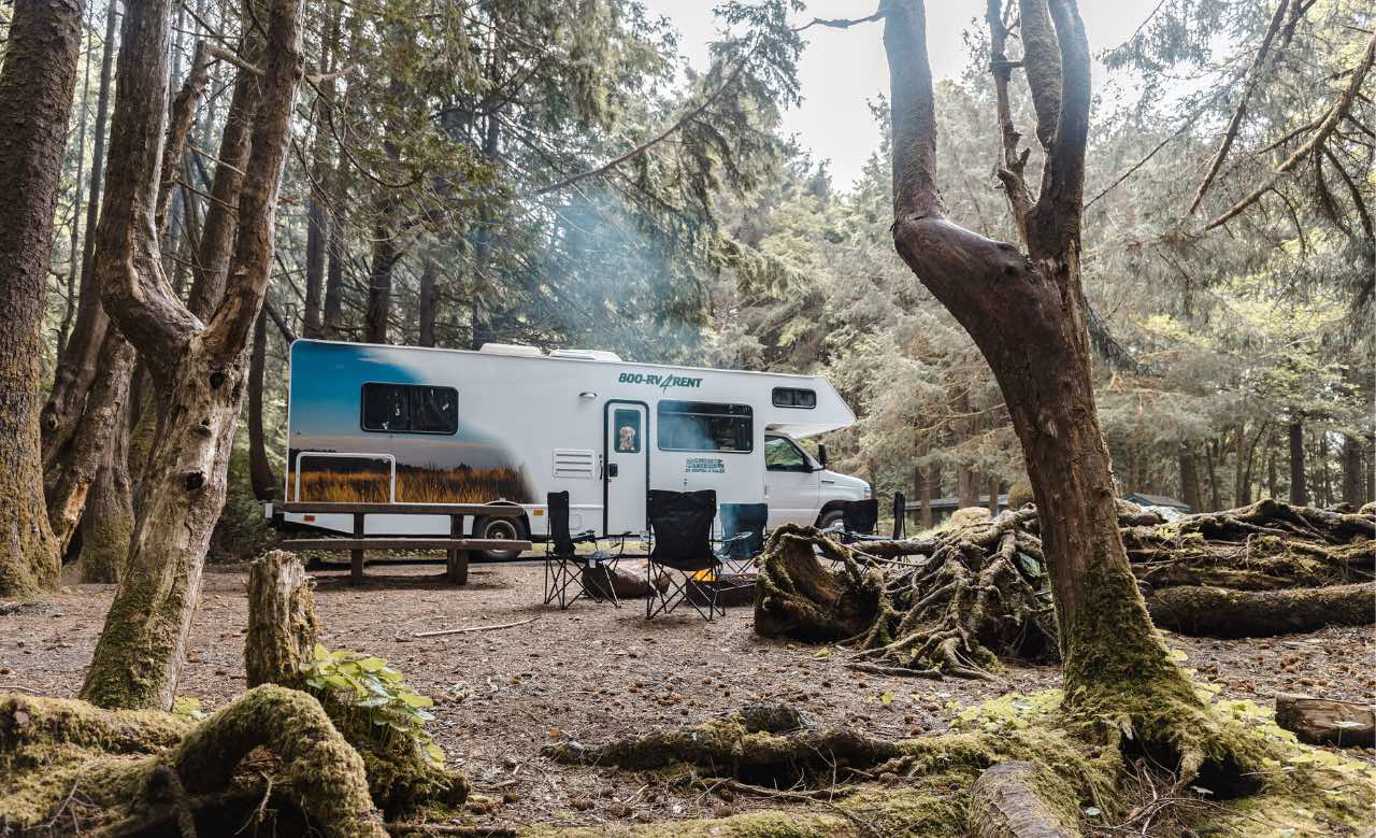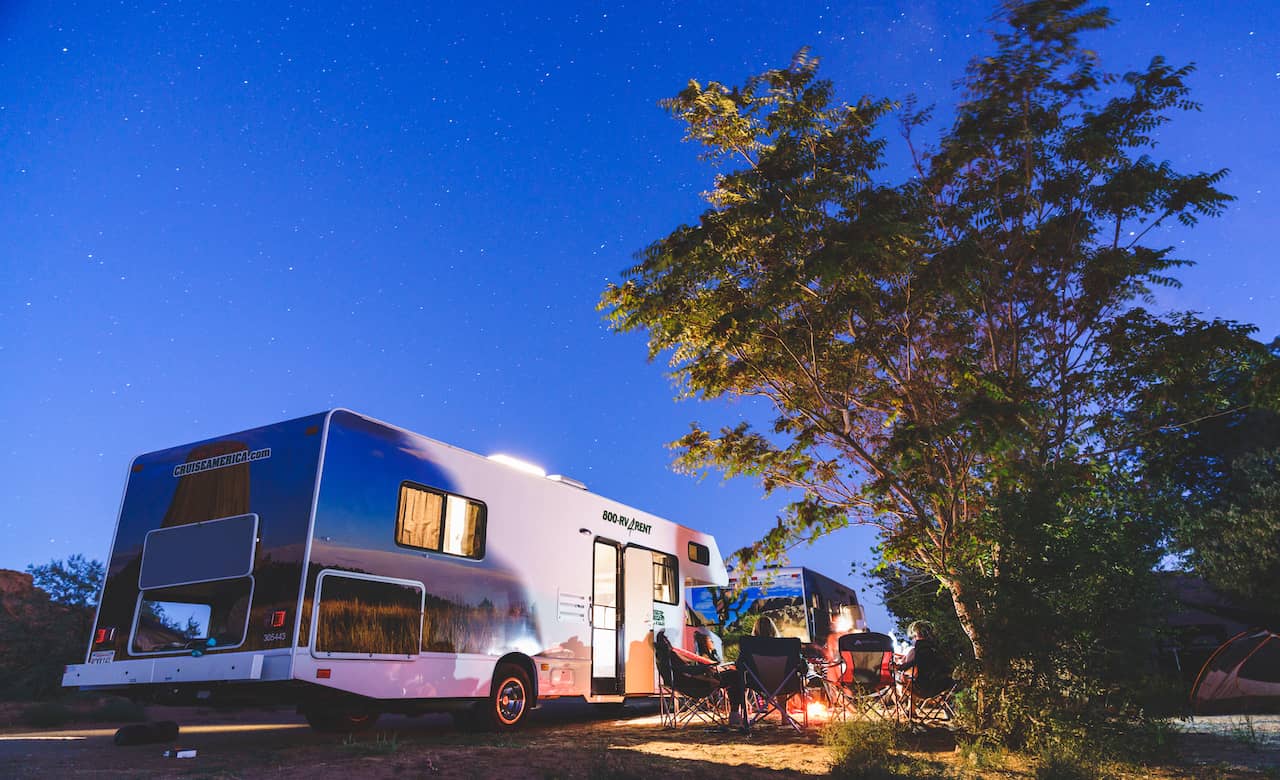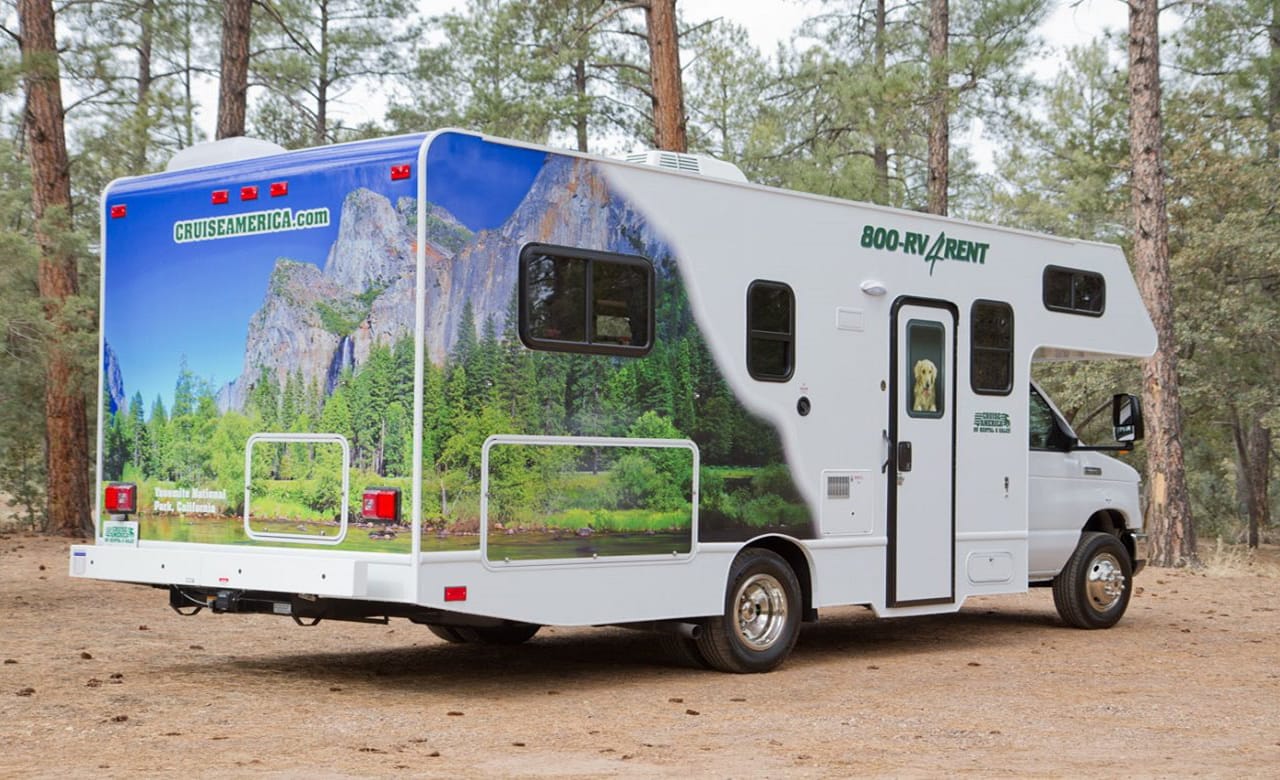
Is it bad to leave your RV plugged in all the time?
Unfortunately, there’s no simple answer to that question. To explain, we need to go over a few RV power basics.
From overcharging to sulfation, RV power can be confusing. That’s why we put together this article to clarify common misconceptions.
Whether you just bought an RV or decided to rent one, follow along for some top battery tips to keep your rig running smoothly.
Short Term Battery Usage
Should I leave my RV plugged in when not in use?
For RV rentals, when you’re out on the road, or for any short term battery usage, you should have no problem leaving your RV plugged in 24/7.
If you’re renting an RV from a company like Cruise America, you won’t have to worry about overcharging your battery. Cruise America RVs come with modern converters that slow to a trickle charge after the batteries are topped off.
Of course, if you have an older RV that doesn’t have a modern RV battery converter or a battery tender, it’s a different story. To explain why we have to go over a few RV power basics.
RV Power Basics
While renting an RV is fun and easy, long term care and maintenance of RVs can be complicated. If you want to do things properly, you first need to know how an RV is powered.
RVs mainly use lead-acid, deep cycle batteries to power electronics. However, more recently, some RV manufacturers have taken to lithium batteries because of reduced maintenance and improved compatibility with solar panels.
For this article, though, we’ll discuss lead-acid batteries.
RVs have two separate power systems, one that runs on 120-volt alternating current (AC) and another that runs on 12-volt direct current (DC).
DC power comes from the battery and runs the lights, water pumps, fans, TVs, and radio. AC power, on the other hand, is what we use in our homes. RVs connect to electrical grids through either 30 amp or 50 amp power chargers to get AC power. It’s called shore power.
Shore power then runs through a converter, which turns it from AC power into DC power to be used in the RV’s battery. An inverter can also be used to perform the opposite power switch.
RV batteries may be a little confusing, but remember all batteries, regardless of type, will lose charge over time—especially if they aren’t stored and maintained properly.

Is it bad to leave your RV plugged in all the time?
The simple answer is no, but it’s more complex than that.
You can leave your RV plugged in all the time while in use or for short term rentals as we’ve discussed.
However, storing an RV over the long term or living in it and leaving it plugged in is a different story. Long-term use and storage are only possible if you use an RV battery tender or have a newer RV converter with a smart charging system to maintain optimal voltage.
This is because the amount of power a lead-acid battery loses over time depends on how, where, and the temperature at which it’s stored.
You can both overcharge and undercharge lead-acid batteries. They can be the Goldilocks of batteries—at least in older RVs. That’s why it pays to go with more modern RVs like the ones at Cruise.
Factors That Affect RV Battery Life
Overcharging
If you leave your RV battery plugged in after it’s fully charged, it can deplete the cells' electrolyte levels. This can lead to reduced battery life unless you have a newer RV converter with a three or four-stage charging process called a smart charger or if you’ve attached a battery tender.
When electrolyte levels in lead-acid batteries fall from overcharging, you can add distilled water to fix the problem, but battery life will still be lost.
Overcharging is common when RVs are left plugged in without a battery tender for months on end, so be careful, especially when storing RVs over the winter.
Undercharging
Undercharging a battery can also lead to reduced battery life because of the chemical process called sulfation.
Sulfation is a buildup that occurs on batteries that are not fully charged for long periods. It can prevent the chemical-electrical conversion that batteries need to function, reducing their ability to hold a charge.
Batteries can be undercharged because of overuse, or because of voltage loss during storage. Recharging the battery promptly is the best way to prevent sulfation. When in storage, the goal is always to have the battery between 80 and 100% charge.
The best way to do this is with a battery tender, but you could also use a battery tester and consistent maintenance.
Parasitic Loads
Parasitic loads like gas detectors, clocks, and other small electrical devices drain power when your RV isn’t in use. If the power gets too low, it can hurt battery life. Your RV should be equipped with battery disconnect switches to prevent this, so don’t forget to engage them when the RV is off or in storage.
Temperature Changes
Another factor that affects battery life during storage is temperature. If batteries get too hot or too cold, they will lose voltage capacity over time.
So, if you’re planning on storing your RV outside for the winter while plugged in, it might make more sense to remove the batteries and charge them occasionally overwinter instead. Freezing can hurt battery life.
It’s time for an RV trip!
If all of this RV maintenance sounds like too much to deal with, you can always rent an RV and start your adventure today!
Cruise America offers the best prices and RVs in the industry. Every RV comes with a freshwater toilet, shower, gas stove, microwave, refrigerator, and generator, plus air conditioning and heating.
And your batteries are guaranteed to be working and ready to be plugged in 24/7!





